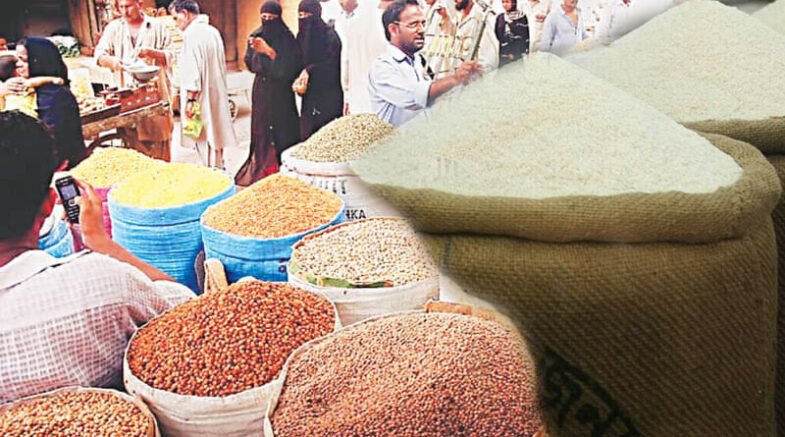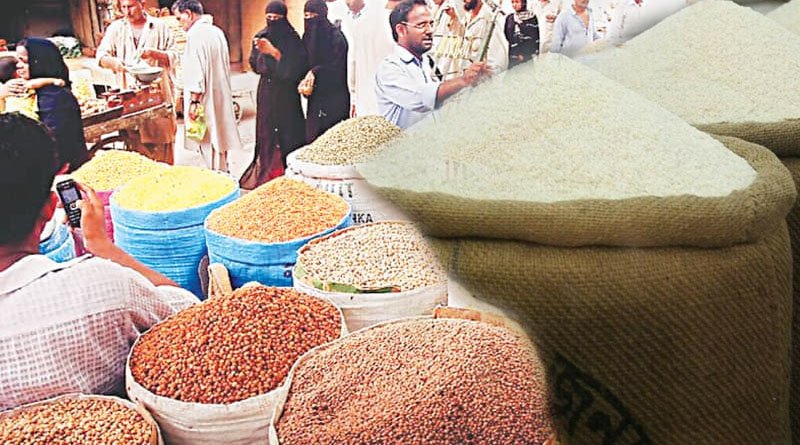Pakistan produces about 27 million metric tonnes of wheat annually, which is worth $7.4 billion in US dollars.

As insufficient storage facilities are the main cause of losses in staple commodities, Pakistan can save up to $1.3 billion annually by concentrating on developing an efficient storage system. Pakistan produces about 27 million metric tonnes of wheat annually, which is worth $7.4 billion in US dollars.
The nation’s storage system capacity for staple commodities, however, is less than 6 million metric tonnes, which means that the remaining amount of wheat is kept in unsanitary conditions, resulting in a minimum 10% loss of the remaining commodity, valued at $740 million.
In an interview on Wednesday, Farhan Tahir, an executive member of the Asia Pacific Seed Association (APSA), asserted that, if this grain were saved, it would be sufficient to feed the populations of Karachi and Lahore. Farhan stated that while every effort was being made to increase the yield per acre, there was no attention being paid to preserving the current level of production of staple commodities.
Farmers were not able to hold their yield for even two months, and as a result, they were not receiving the full price for their goods. Take corn as an example: Pakistan had a per-acre yield comparable to the US, but when harvest time arrived, prices plummeted, costing the growers money.
He claimed that the country was also greatly threatened by climate change, which called for the adoption of effective storage solutions. According to him, the monsoon season has extended from the initial three weeks to six weeks, and the stored grains are now in grave danger from torrential and erratic rains.
He claimed that our wheat, which was primarily kept in “ganjis” in open areas, had suffered severe damage as a result of recent floods. Due to the severe infestation, farmers in Pakistan have been using phosphine tablets excessively as fumigants, which are poisonous by nature and a major contributor to health problems like anaemia and diarrhoea, especially in women.
The farmers’ income could increase by 20–40% if they could store their goods for an additional two–three months. Additionally, he added, a reduction in post-harvest losses of 15-20% can significantly lower the cost of production for final consumers.
The International Rice Research Institute (IRRI), the International Maize and Wheat Improvement Center (CIMMYT), and the University of Hohenheim developed “hermetic” technology, which operates on the principles of the airtight jar and is the best solution to these problems, according to Farhan, the Director of a leading Pakistani agricultural company dealing in various farming solutions, including seed and storage.
Hermetic properties prevent the exchange of any gases or moisture from the surrounding environment. This produces a high CO2 and low oxygen environment that makes it impossible for life to exist inside the hermetic cocoon without the use of chemicals and enables the consistent organic storage of goods for up to 12 years.
A smartphone can be used to remotely check on the state of the goods in the cocoons from any location, he added. He claimed that Okara and Chiniot had already seen the start of this project. The cocoons were set up in an open field and equipped with sensors and humidity metres so that a mobile application could be used to track the levels of carbon dioxide and humidity in the grains.
Farhan claimed that although they were leasing out these hermetically sealed containers to farmers, the government ought to step in and request that Pakistan Agricultural Storage and Services Corporation (Passco) and local food administrations adopt this technology in order to preserve their grain reserves.
He claimed that discussions about the dissemination of this technology had already begun with the Punjab Food Department. In addition to choosing from a variety of other technologies to preserve the grain produced after hard labor, Farhan recommended that the government offer farmers interest-free loans so they can adopt this technology and construct their own organic and effective storage facility.
